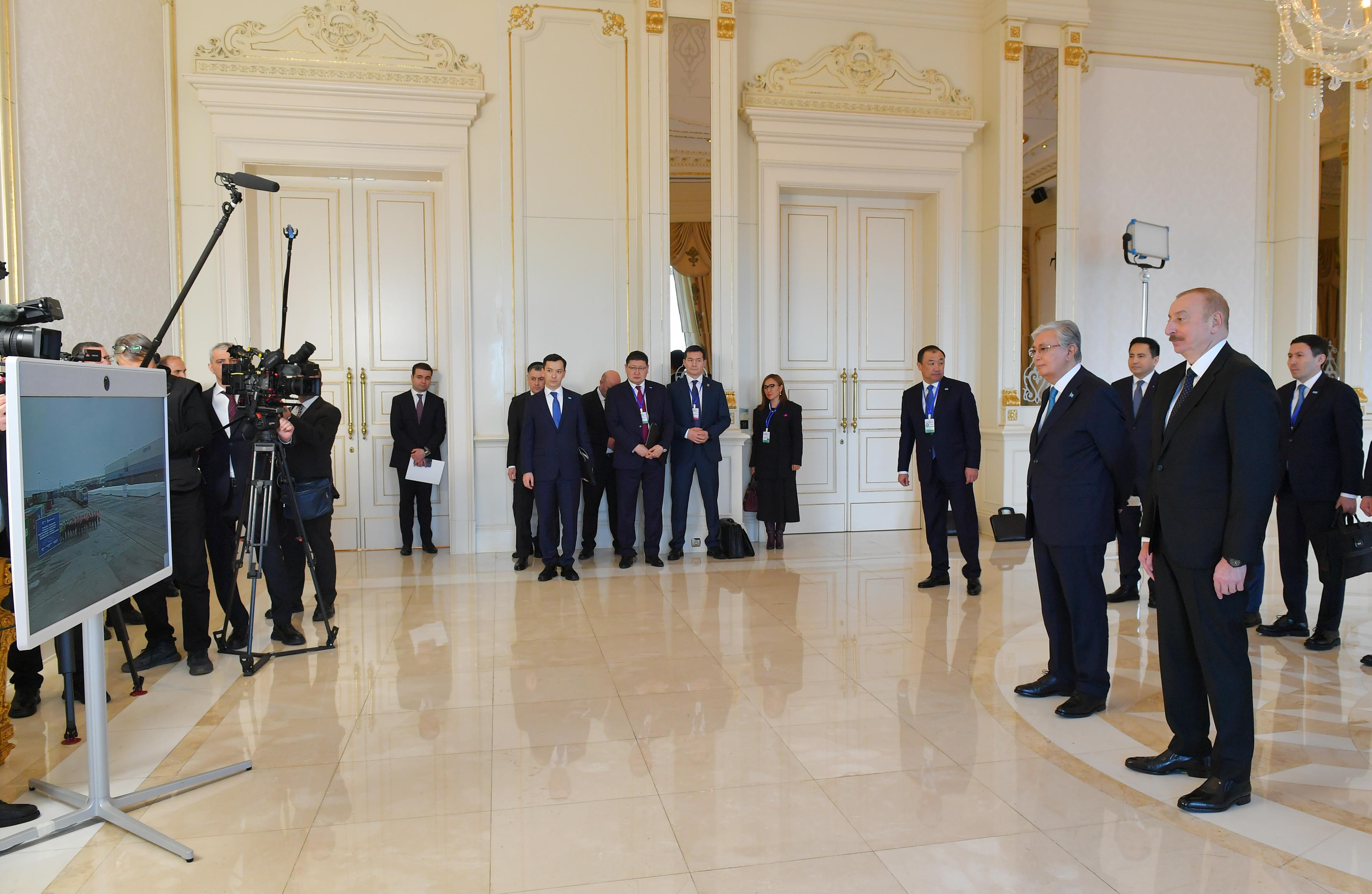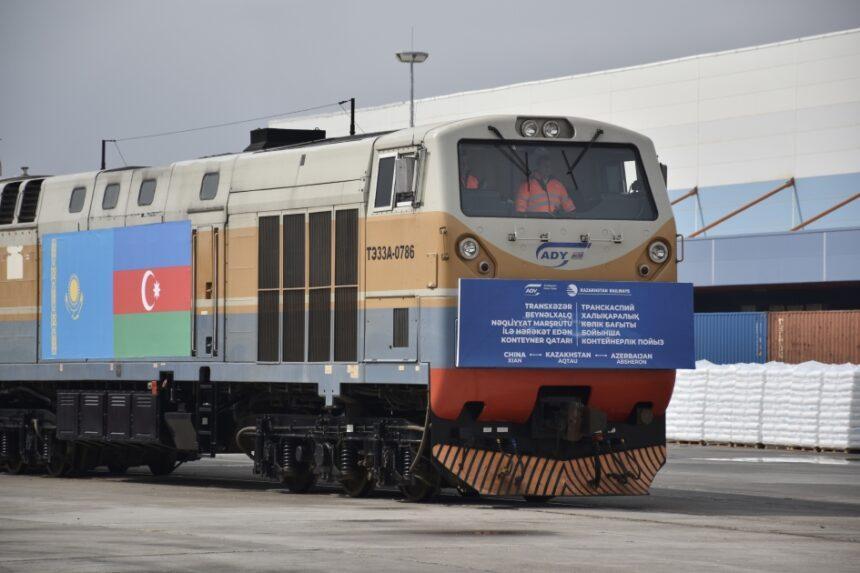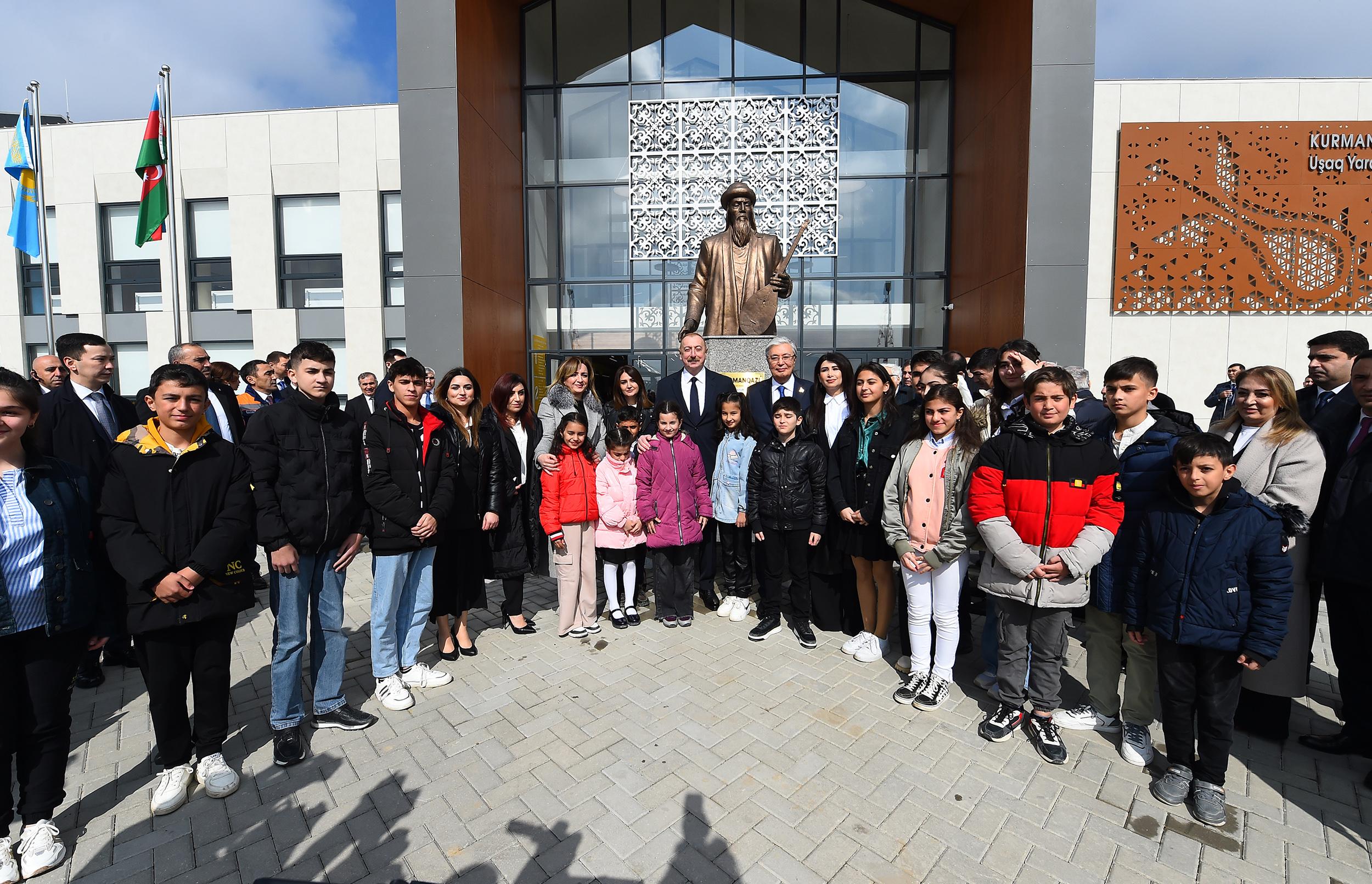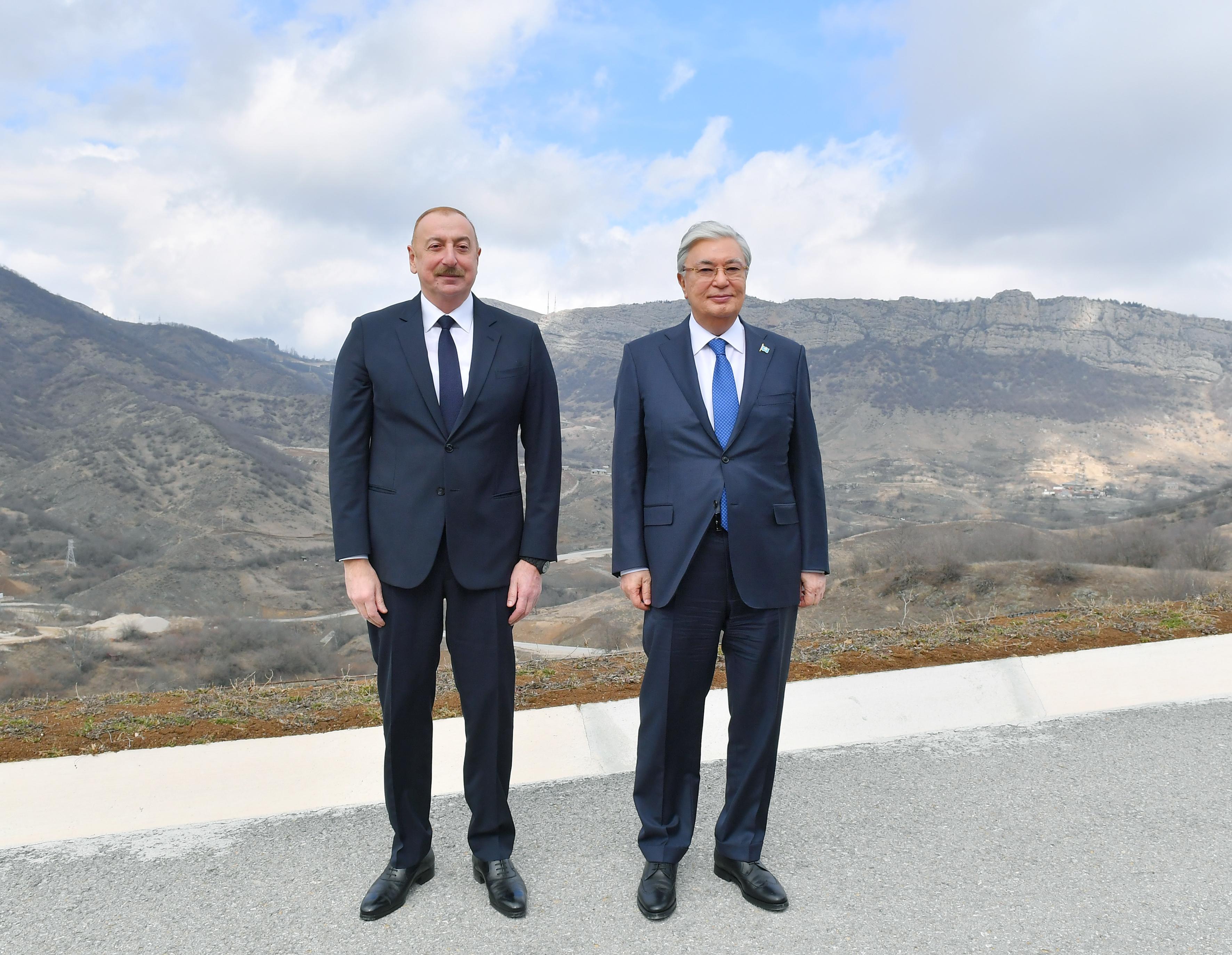Azerbaijani-Kazakh co-op paves the way for regional connectivity & economic cohesion Middle Corridor's triumph
With the diplomatic scene rapidly improving between Azerbaijan and most of Central Asian nations, the profound collaboration, encompassing various sectors between Baku and Astana, is witnessing a remarkable and positive transformation for the better.
Advancing regional connectivity and economic integration
The pivotal shift is gradually ushering in the exploration of innovative sectors for collaboration, marking a significant departure from traditional avenues of engagement with the impact of the transformation extending beyond borders, benefiting multiple continents and millions of people.
President Kasym-Jomart Tokayev's monumental state visit to Azerbaijan on March 11-12, 2024, served as the zenith of the burgeoning partnership, marking a watershed moment in the blossoming rapport between the two brethren nations.
Amid the ongoing maritime crisis, caused by Houthis, which poses challenges to trade transit routes, and amid the prolonged shipment period from China to Europe, spanning over 40 days, the importance of the Middle Corridor is surging and is poised to alleviate challenges for commodity suppliers and receivers in Europe and beyond.
Central Asia holds immense significance as a pivotal region, with Azerbaijan playing a crucial role at the heart of the historic Silk Road route. This historical trade route has long served as a primary link between East and West, facilitating the exchange of goods, ideas, and culture.

In light of ongoing developments, especially the emergence of state-of-the-art infrastructure connecting Baku to Turkey, Azerbaijan's forward-thinking vision proved immensely conducive to overall efforts. This infrastructure, with its modern facilities and efficient connectivity, not only reflects Azerbaijan's commitment to progress but also highlights its strategic position as a key player in regional and global trade networks.
The timeliness of Azerbaijan's futuristic outlook is evident in the unfolding developments. As the country continues to invest in cutting-edge infrastructure projects, it is poised to meet the evolving needs and expectations of the region and beyond in the years to come. This commitment to innovation and forward planning further solidifies Azerbaijan's status as a vital hub for trade, commerce, and connectivity with Central Asia and beyond.
In a momentous display of international cooperation, Presidents Ilham Aliyev of Azerbaijan and Kasym-Jomart Tokayev of Kazakhstan observed, via a live video link, the ceremonial arrival of a container train journeying from China's Xi'an terminal to Baku's Absheron station.
This landmark event was made possible through the coordination of the Transport Logistics Centre in Xi'an, China, an entity owned by Kazakhstan. The dispatching of this container train holds profound significance for all stakeholders involved in the Middle Corridor route, symbolizing a pivotal step towards enhanced connectivity and economic integration.
Comprising 61 containers, the train traversed a lengthy 7,000-km-long route from the Kazakhstan terminal in Xi'an to Aktau, and finally to the Absheron station in Baku, completing its journey in a remarkable 11 days.

The transportation process exemplified a multimodal approach, where containers underwent reloading at various ports in Kazakhstan before embarking on a leg of their journey across the Caspian Sea to reach the Baku International Sea Trade Port. From there, they were seamlessly transported to the Absheron station, showcasing the efficiency of cross-border logistics synergy.
The inauguration of the Transport Logistics Centre in China marks a pivotal moment in the quest to bolster cargo transportation along the route, signaling a concerted effort to spur the growth of the Middle Corridor and entice new cargo shipments. Initial projections foresee the dispatch of a remarkable 10 container trains to Azerbaijan each month through the Kazakhstan-owned logistics hub in China, underscoring the ambitious scale of this endeavor and its potential to revolutionize regional trade dynamics.
Furthermore, in a bid to foster the development of the Middle Corridor, a cutting-edge digital Direct Trade Corridor (DTC) platform has been established. This innovative digital infrastructure seamlessly integrates the Azerbaijani and Kazakh railway systems, incorporating a sophisticated Track and Trace functionality for real-time monitoring of cargo movements along the route. The creation and evolution of this unified digital ecosystem serve to enhance the transparency and allure of the Middle Corridor, positioning it as a premier choice for efficient and reliable cargo transit.
With Azerbaijani and Kazakh railways joining forces, a concerted push is underway to substantially augment the volume of cargo transportation in 2024 and further. Encouraging early indicators highlight this collaborative effort, with the volume of cargo transportation between Kazakhstan Temir Zholy (KTZ) and Azerbaijan Railways (ADY) witnessing a commendable 25% surge during the January-February 2024 period compared to the corresponding timeframe in 2023, reaching a substantial total of 539,500 tons.
Remarkably, the Middle Corridor's game-changing impact is vividly illustrated by the drastic reduction in delivery times for cargoes originating from China and destined for the Black Sea ports. Whereas previously, the journey via the Middle Corridor necessitated approximately 53 days, the implementation of streamlined logistics processes has now slashed this duration to a remarkable 18 days, underscoring the corridor's newfound efficiency and competitiveness in the global trade arena.
Highlighting the robust collaboration between Kazakhstan and Azerbaijan, President Aliyev emphasized their concerted efforts to fortify mutual engagement across various fronts, particularly in transit transport and connectivity. He underscored the significance of bilateral cooperation as an integral component of broader multilateral initiatives, including the implementation of transformative projects such as the Trans-Caspian transport route and the Middle Corridor.
President Aliyev articulated his optimism regarding the transformative potential of the plans deliberated upon, envisioning a future where container trains seamlessly integrate into the daily fabric of the nations' railways. Stressing the symbiotic relationship between increased cargo transportation and the deepening of cooperation, he lauded the pivotal role that Kazakhstan and Azerbaijan are poised to play in advancing international transportation networks.
The Azerbaijani leader credited Kazakhstan and China as reliable partners, underscoring it as heralding the dawn of a new era in regional connectivity.
Emphasizing the creation of a comprehensive transport and logistical framework across the Eurasian continent, President Tokayev hailed the event as a watershed moment in the annals of Kazakh-Azerbaijani cooperation.
He commended Kazakhstan and Azerbaijan as natural strategic allies and partners across various domains, including the pivotal realm of transport and logistics. Reflecting on the substantive discussions held during bilateral negotiations, President Tokayev underscored the unifying nature of their collaborative efforts, which extend beyond national borders to encompass neighboring states.
Kazakhstan's gift in Fuzuli symbolizes hope & brotherhood
During his visit to Azerbaijan, President Kasym-Jomart Tokayev extended his itinerary to include stops in Fuzuli and Shusha, two cities in the Karabakh region that have been undergoing extensive restoration efforts following nearly three decades of occupation by Armenia.
In Fuzuli, President Tokayev inaugurated the Kurmangazy Children's Creativity Center, a project generously funded by Kazakhstan as a gift to the people of Azerbaijan, with a special focus on the residents of Fuzuli. This center is to serve a dual purpose: to nurture creativity among children and to strengthen the longstanding bonds of friendship and brotherhood between Kazakhstan and Azerbaijan.

The significance of the center transcends its physical structure, resonating deeply with those who harbored dreams of returning to their homeland over 30 years. For many, the sight of the devastated Karabakh upon their return evoked a mix of emotions - bitter reminders of the past and hopeful anticipation for the future.
The establishment of the center symbolizes a beacon of hope and joy amid the ongoing restoration efforts, leaving an indelible mark on the hearts and minds of the people of Azerbaijan for generations to come.
Importance of Shusha trip
The visit to Shusha holds paramount importance against the backdrop of Armenia's objection and Azerbaijan's fervent desire to let the international community know that Karabakh is eternal Azerbaijani land.

In the face of Armenia's persistent objections and historical territorial claims, Azerbaijan has been steadfast in its mission to assert sovereignty over Karabakh, emphasizing its deep-rooted historical and cultural ties to the region.
The Shusha visit serves as a powerful diplomatic statement, reaffirming Azerbaijan's unwavering commitment to reclaiming and restoring its territories. By personally witnessing the ongoing restoration efforts in Shusha, President Tokayev not only underscores Kazakhstan's support for Azerbaijan's territorial integrity but also highlights the significance of international recognition of Karabakh as integral Azerbaijani lands once and for all.
The visit not only showcases solidarity between Kazakhstan and Azerbaijan but also aims to garner broader international acknowledgment of Karabakh's rightful status within Azerbaijan's borders, sending a clear message to the world community: Karabakh is not just a disputed territory but an inseparable part of Azerbaijan's historical and cultural heritage, deserving of recognition and respect on the global stage.








